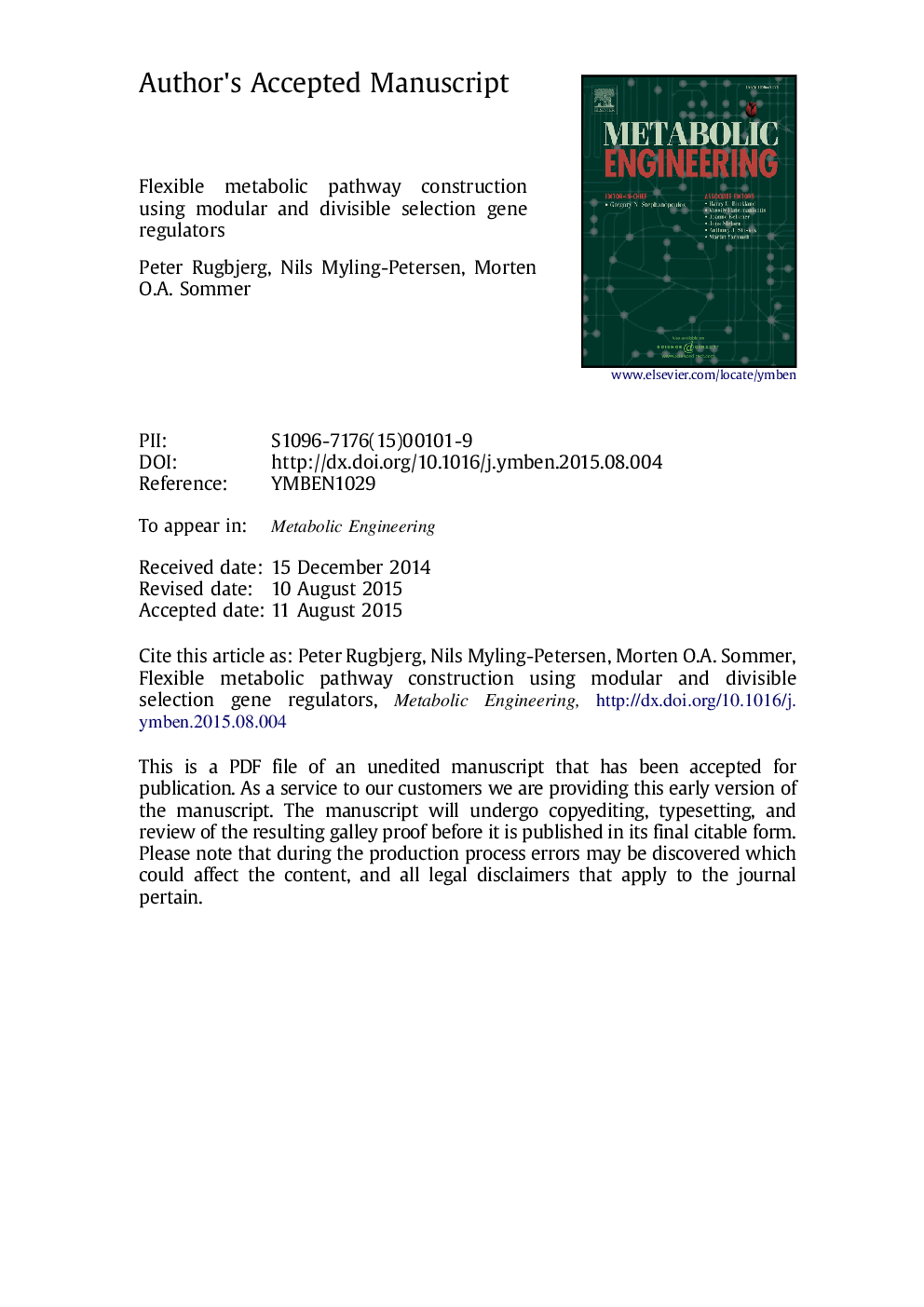| Article ID | Journal | Published Year | Pages | File Type |
|---|---|---|---|---|
| 6494374 | Metabolic Engineering | 2015 | 35 Pages |
Abstract
Genetic selections are important to biological engineering. Although selectable traits are limited, currently each trait only permits simultaneous introduction of a single DNA fragment. Complex pathway and strain construction however depends on rapid, combinatorial introduction of many genes that encode putative pathway candidates and homologs. To triple the utility of existing selection genes, we have developed divisible selection in Saccharomyces cerevisiae. Here, independent DNA fragments can be introduced and selected for simultaneously using a set of split hybrid transcription factors composed of parts from Escherichia coli LexA and Herpes simplex VP16 to regulate one single selectable phenotype of choice. Only when co-expressed, these split hybrid transcription factors promote transcription of a selection gene, causing tight selection of transformants containing all desired DNA fragments. Upon transformation, 94% of the selected colonies resulted strictly from transforming all three modules based on ARS/CEN plasmids. Similarly when used for chromosome integration, 95% of the transformants contained all three modules. The divisible selection system acts dominantly and thus expands selection gene utility from one to three without any genomic pre-modifications of the strain. We demonstrate the approach by introducing the fungal rubrofusarin polyketide pathway at a gene load of 11Â kb distributed on three different plasmids, using a single selection trait and one yeast transformation step. By tripling the utility of existing selection genes, the employment of divisible selection improves flexibility and freedom in the strain engineering process.
Keywords
Related Topics
Physical Sciences and Engineering
Chemical Engineering
Bioengineering
Authors
Peter Rugbjerg, Nils Myling-Petersen, Morten O.A. Sommer,
